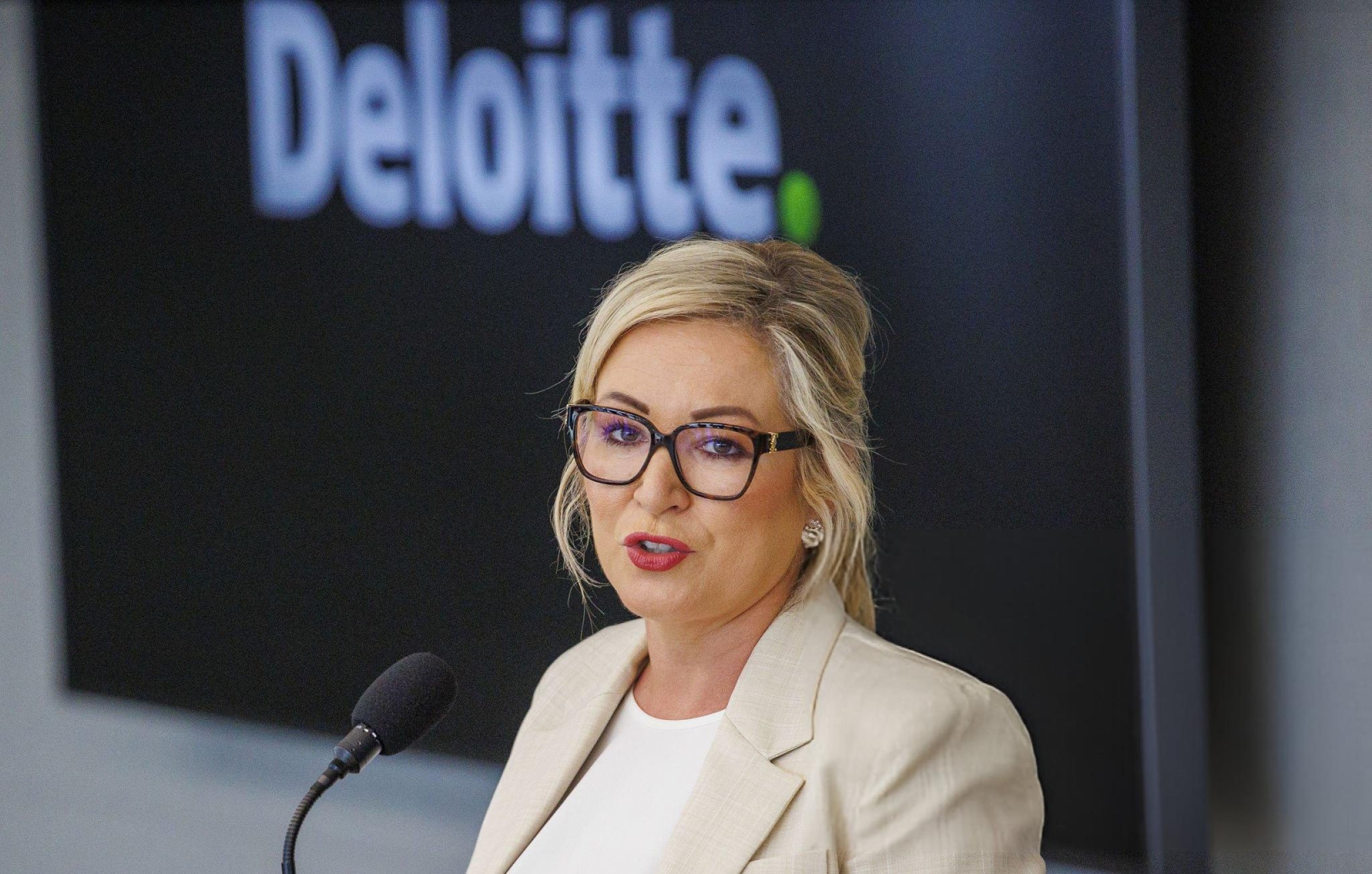There is “no evidence” to suggest a fall in public compliance with Covid-19 restrictions following the funeral of senior republican Bobby Storey in June 2020, Northern Ireland First Minister Michelle O’Neill has insisted.
Appearing at the UK Covid-19 Inquiry in London, Ms O’Neill dismissed allegations made by former First Minister Arlene Foster, who claimed that public adherence to pandemic rules declined after Sinn Féin ministers, including Ms O’Neill herself, attended the large-scale west Belfast funeral.
“I don’t believe there is any evidence that suggests that actually is the case,” said Ms O’Neill, adding that such remarks were “politically motivated”.
Baroness Hallett’s inquiry is currently examining decisions made at Stormont around test, trace and isolation strategies in the early stages of the pandemic.
Mrs Foster, former leader of the Democratic Unionist Party, told the inquiry that despite daily pleas for compliance during press conferences, public trust in the rules suffered due to the funeral controversy.
“There was a breakdown in compliance after the attendance of senior members of Sinn Féin,” she said. “It caused severe difficulties in Northern Ireland with compliance and adherence.”
She further said that the fallout from the funeral continued to cast a shadow over the Executive’s efforts to maintain Covid-19 discipline, despite collaboration with the PSNI and the allocation of funds to councils for the hiring of Covid marshals.
However, Northern Ireland’s Chief Medical Officer, Professor Sir Michael McBride, said he was not aware of any data showing a dip in public adherence specifically attributable to the funeral.
“From a purely scientific and public health perspective, I’m not aware of any evidence that that’s the case,” he said. “The main driver of rising cases later that summer was the relaxation of restrictions, agreed by the Executive.”
Ms O’Neill reiterated her 2024 apology for attending the funeral, but remained firm in her belief that it did not directly impact compliance behaviour among the wider public.
Elsewhere in the hearing, both Foster and O’Neill faced questions over the decision to pause contact tracing on 12 March 2020 — a move later reinstated via a pilot programme on 27 April and reintroduced fully on 18 May.
Mrs Foster said that the decision followed a COBRA meeting in London, where she, Ms O’Neill, and Health Minister Robin Swann were largely “in receive mode” and did not engage significantly in the decision-making process.
“I didn’t have the understanding after that COBRA meeting… that we were going to stop contact tracing,” she said. “The Department of Health clearly did have that understanding.”
In contrast, Professor McBride told the inquiry it was “clear” from the meeting minutes that stopping contact tracing was indeed the decision taken, driven primarily by the lack of testing capacity. “Even a week after March 12, we had fewer than 200 tests available daily in Northern Ireland,” he explained.
Ms O’Neill said she had expressed concern at the time, noting in her own meeting notes that the “GB approach [was a] nightmare compared to rest of world”. She criticised the decision as being out of step with WHO guidance.
When asked whether political divisions hindered decision-making, O’Neill replied: “That’s not a political point, it’s a logical one. We’re one epidemiological unit. That wasn’t being taken on board.”
Mr Swann also gave evidence, confirming that he was challenged on the decision to end contact tracing but was not instructed to reverse it. He explained that calls to “test, test, test” — popularised by WHO — did not match the available infrastructure.
“You can’t just say ‘test, test, test’ and expect reagents, swabs, and lab machines to appear,” he said.
Reflecting on the human toll, Mrs Foster shared a moving personal regret. “If I could change one thing, it would be to allow families to make their own informed decisions about being with loved ones as they died. It was inhumane to deny them that.”
As the inquiry continues, it remains clear that both political tensions and logistical limitations shaped Northern Ireland’s pandemic response — and continue to define the debate around it.






